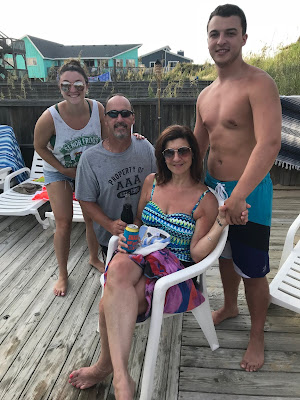Now that the semester is well underway, I realize that graduate school is not just about sitting in lecture and memorizing and understanding lots of material, as was the case in most of my undergraduate classes. To be an effective practitioner, across all programs offered at Salus, other skills must be learned, too. It is in this sense that graduate school teaches you how to be a professional. In other words, graduate school is job training, where we build upon, apply to, and use the knowledge we have obtained in a practical way. The classroom work is preparation for, and an essential companion to, the clinical fieldwork that will we be completing in later semesters.
Coming from a fairly large state university focused on the health sciences and talking to friends there already in their respective health graduate programs, I expected certain logistical differences between undergrad and grad school once I began my career at Salus. Of course, all programs and all schools vary, but from my conversations, I expected that my classes would be structured such that all students in my program year would be with me in each class; that all of my classes would be held in the same building; that the classes would meet less frequently throughout the week; and that I would complete many projects and presentations, including group projects. No longer would I take classes from a wide variety of disciplines, scampering from one end of campus to the other to make it to the next building in time for the next 50-minute class, where there I would often only know a fraction of my classmates. This different school structure I was told about has been true and has provided very beneficial learning experiences.
 As a first-year Occupational Therapy (OT) student, my class consists of 50 students. We are in class with each other for all of our courses, except we split up into smaller groups for labs. Through this set up, we really do have the opportunity to get to know each other. Additionally, the claim about group work has rang true as well. Often times, in class, we have discussions in small groups and also have class-wide discussions. This interactive format helps us to learn by collaborating with each other and sharing different perspectives, which are important aspects to our future careers in healthcare. During our lab time, we complete hands-on activities. We also have many group projects assigned outside of class that make up a large part of our grade. Working in teams, communicating, and respectfully sharing ideas are all necessary professional skills we must develop and the classroom set-up as well as the assessments foster these attributes.
As a first-year Occupational Therapy (OT) student, my class consists of 50 students. We are in class with each other for all of our courses, except we split up into smaller groups for labs. Through this set up, we really do have the opportunity to get to know each other. Additionally, the claim about group work has rang true as well. Often times, in class, we have discussions in small groups and also have class-wide discussions. This interactive format helps us to learn by collaborating with each other and sharing different perspectives, which are important aspects to our future careers in healthcare. During our lab time, we complete hands-on activities. We also have many group projects assigned outside of class that make up a large part of our grade. Working in teams, communicating, and respectfully sharing ideas are all necessary professional skills we must develop and the classroom set-up as well as the assessments foster these attributes.Another note about class scheduling- for the Occupational Therapy program, we only have about two classes per day, and we only have each class once a week. This means that when we are in each class, the class is several hours long. At first, when I heard that this is how many graduate programs are set up, I wasn’t sure how I would like sitting in the same room concentrating on one subject for such a long time, especially if the class was strictly a lecture, as I didn’t prefer this type of class schedule in my secondary school years. However, despite having long classes, from the start of my first week at Salus, I have gotten so much out of these classes for several reasons. First, because the classes are interactive, whether through discussions, group work assignments, or through the professor asking questions throughout the lecture, being in one class for one block of time has kept my attention and stimulated my thinking. Additionally, having a larger block of time allows for completion of more hands-on activities which allows us
to hone in on skills that will be needed as a professional occupational therapist. During our time in the College of Education and Rehabilitation (CER) Lab, we work in pairs at different stations completing different tasks in order to assess the skills needed to perform such tasks – such as putting beads on a string to assess a preschool educational benchmark relating to patterning. We’re usually given short five to ten minute breaks periodically to break up the time and allow us to get up and stretch our legs, so the class feels like it is divided into smaller time frames. Lastly, our classes are scheduled back-to-back, with a lunch hour in between, which makes for an efficient day. The classes are engaging, and I’m surprised by how quickly the time has passed when we reach the end of each class.
The logistics of graduate school have met my expectations and I have seen the benefits of why graduate school is set up this way. Having longer class times with our entire class enhances our learning, and takes us one step further in becoming a professional.
- Kaylin is a first-year occupational therapy student at Salus University
Learn More About Salus University











